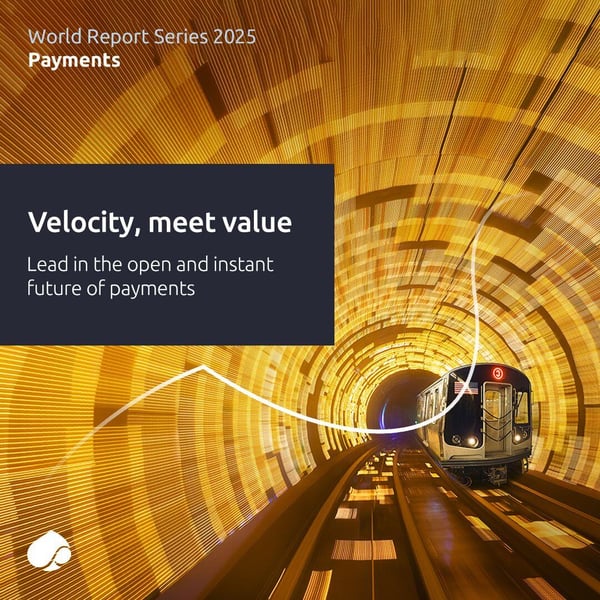As we are slowly putting our heads above ground, we see early effects on spending and the way we spend as people and businesses. Recent research clearly shows that one in five Londoners has cancelled direct debits over the last few weeks for ‘non-essential’ expenditure such as lease cars, leisure memberships, subscriptions, etc. Charities suffer equally from full cancellations that will take a lot of effort to reinstate when the ‘real economy’ veers back.
We all agree on our concern for the real economy: the small businesses, the independent traders, and workers (#gig) that always find themselves at the forefront of change. So besides ‘voting with our hands and feet’ as we buy stuff what can we do for them? As a bank, a PSP? As the world is changing so should we by adopting and offering other – more balanced and instant – ways to pay and collect money.
Action 1 – instant money in the bank
'Cash is king’ is today truer than ever. It is no good to have a long list of debtors who do not pay or not on time. The cost of late payments cannot be overstated in terms of pure money, but also in terms of lost opportunities and late hires. Hitachi Capital UK issued a research paper in September 2019 and calculated that late payments cost the UK SMEs some £51.5billion a year. The European Payments Report researched nearly 10,000 businesses in 29 countries all over Europe on the risk, impact and solutions of late payments. Faster and instant payments can make a huge difference, probably more so than ‘organised encouragement’ such as the Prompt Payment Code in the UK or the European Late Payments Directive, that most small businesses, let alone independent traders, are aware of.
The report shows that in general SMEs protect themselves against late and bad payment through pre-payments (42%), credit checks (24%), debt collection if all fails (20%), and some go for bank guarantees and or credit insurance (10/10%) and about 6% opt for invoice financing.
The only true solutions above are pre-payments and financing, whereby the former does not necessarily build a great experience upfront if you demand 100% before delivery and factoring is quite a hard process to go through for infrequent customers.
A Request to Pay private label scheme allows a bank to offer a full end to end service to its business customers and charitable organisations, clubs etc. to secure instant receivables or on time via a pre-agreed time schedule for partial payments. A bank that helps businesses send invoices and receive money instantly is truly standing up for its customers and puts its ‘money where its mouth is’.
Action 2 – create fair balance and control for all
Instant money collection is not new of course, but it used to be tied to a predefined payment product – by the bank – like a direct debit. This is much loved by the issuer, the payee, but not so much by the client, the payer as we now find out. Many clubs and charities are suffering today from (unnecessary) cancellations simply because people are now very wary about money just leaving the account. As wardrobes got sorted out, so did the lists of direct debits over the last few weeks. If you would be able to offer your customers or donators the opportunity to say yes/no on a monthly basis some business and revenue would be saved. Also, direct debits are quite laborious to set up and require a lot of attention on both sides before anything can happen and the ‘Pause” button does not work in all countries. Request to Pay services delete the sense of being out of control and redress the balance in a world that is fragile enough as it is today.
Action 3 – free up real business time
Most entrepreneurs love their job and our passionate about their business, yet ‘hate’ the admin and hassle around it. As a veteran SME banker told us recently: “In forty years of SME banking one truth holds up: anything that costs less or saves time gets a thumb’s up”. This insight is not new and used by many players from accounting package providers to (neo) banks and single purpose fintech apps. There is indeed a lot of new great technology out there, but we see that busy businessmen and women prefer not to go ‘app hopping’ after a or during a busy working day. They would prefer to make an invoice in the banking or payments app they are used to, send it by Whatsapp or email, whichever tool liked by the company or the client, securely, get notifications when the client has received the invoice and paid by ‘click’ or on a time schedule, or when he/she is late. Reminders are issued and payments are automatically making money through work. Dashboards give insight and that is key.
Let’s join forces and start today
Banks and other licensed payment providers still have the x-factor at hand today: they can give their customers a single business overview across multiple banks AND offer accounting package integration and reconciliation AND work with external parties if they like around niche fee-based services such as lending, check-out loans, invoice financing etc.
Under the financial institution’s own brand, through the label their customers like and trust. This way one builds a relevant and rewarding relationship from day one, through pain and gain, hopefully into a period of enterprise ready international growth. Why not build all that trust and mutual insight through your own hard-earned brand, rather than give that experience away? You can be that bank for your customers today. Let us be your invisible force behind the scenes!
.png)

.png?width=600&name=Rectangle%20316%20(3).png)
.png?width=600&name=Webinar%20assets%20(1).png)

